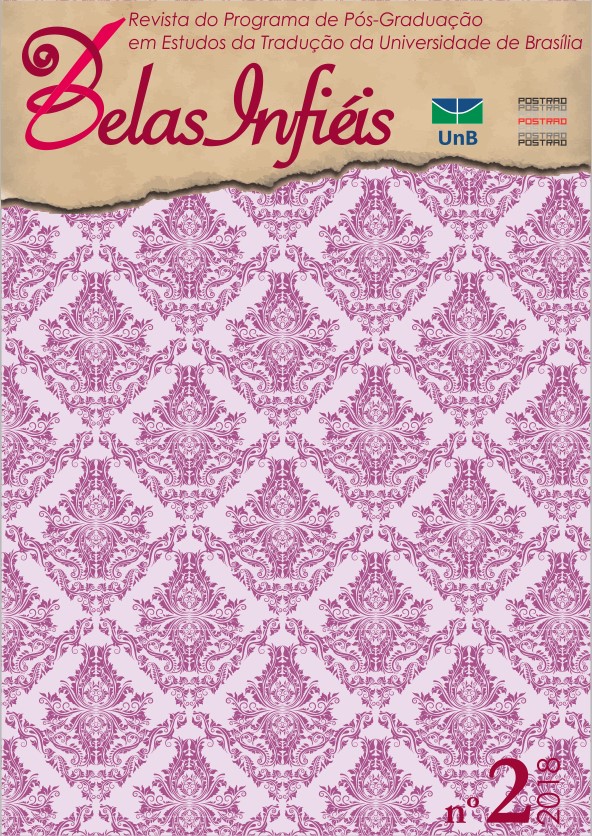Feminist translation studies:
a branch of research of the Postgraduate Program in Translation Studies (PGET-UFSC)
DOI:
https://doi.org/10.26512/belasinfieis.v7i2.15266Keywords:
Feminist Translation Studies, Translation History, PGET-UFSCAbstract
Facing the invisiblization imposed over women on the field of Translation, this paper aims to analyze the theoretical and practical contributions developed at the Post-Graduate Program of Translation Studies (PGET) of the Federal University of Santa Catarina (UFSC) to the Feminist Translation Studies. For this purpose, we present the theses and dissertations defended at this program ”“ being the pioneer in Brazil in Translation Studies e to which we belong ”“, from 2005 to 2018, that approach translation in its intersection with the Gender Studies. With this collection, we hope to foster the visibility of researches developed in this field of studies and favor the formation of networks connecting scholars from several places that are interested in the theme, as part of one of the propositions of the Group of Feminist Studies on Literature and on Translation (GEFLIT/UFSC). From the total of 273 dissertations and 114 theses analyzed, only 20 showed the criteria we employed to gather the corpus. Of these 20, 18 addressed questions of gender, but only nine of them identified themselves as part of the Translation Studies in its intersection with the Gender Studies. Therefore, we conclude that the Feminist Studies still face resistance in the dialogue with other areas of knowledge. This fact reflects the social difference of gender and, consequently, the gendered trace of language and of written culture. In this sense, scholars like Rosvitha Friesen Blume (2010), Luise von Flotow & Farzaneh Farahzad (2016) and Olga Castro (2017) have drawn attention to the urge for a historical recovery of women translators as well as the importance of researches and translation experiences conscious of their feminist role, as we show here.
Downloads
Downloads
Published
How to Cite
Issue
Section
License
Given the public access to this journal, the texts are free to use but requires the recognition of the original authorship and initial publication in this journal to be properly stated.
 The journal allows the use of works published for non-commercial purposes, including the right to submit the work to publicly accessible databases. Published contributions are the sole and exclusive responsibility of the author(s).Â



















